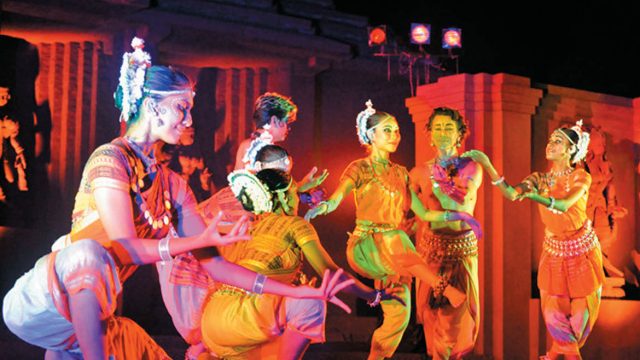Contrary to popular belief in the West, elephants and cows don’t walk on every Indian street; nor does a journey through India guarantee spiritual enlightenment. However, as I stood on the terrace of the Nandgaon temple in Nandgaon, Uttar Pradesh, observing hundreds of revellers smeared with coloured powder, and dancing to the beats of dholaks, during the festival of Holi, I realised that the one Western stereotype of India, which I can’t totally rubbish is that India is a vibrant country that doesn’t miss any opportunity to celebrate and make merry. Indians celebrate victory, unity, new beginnings, art and culture, freedom, womanhood and even elopement. Our calendars are crowded with numerous fairs and festivals.
Every time I travel or shift base to a new place, I end up learning about a new set of customs and marvel at the diversity this country contains. My family belongs to Hyderabad and I completed my schooling from there. Diwali was never the biggest event on the Hindu calendar for us down south. It is a two-day-long festival and on the morning of the first day, my grandmother narrated the legend behind Deepavali (as we call it) to us all—Lord Krishna’s wife Satyabhama kills the demon Narakasura, in Dwapara yug. To commemorate this victory of good over evil, people light lamps and burst firecrackers. When I was nine years old we went on a pilgrimage to Ayodhya. During the train journey a few of my fellow passengers told me that Diwali is the biggest festival in the north and it is celebrated to mark Rama’s return to Ayodhya after being in exile for 14 years. It took me a while to fathom these new bits of information that had been thrown my way.

India is the largest democracy and the second-most populous country in the world and officially recognises 22 languages that are spoken across its 29 states and seven union territories. Further, it is a secular republic, which means you get to witness the frenzy of Ganesh Chaturthi’s festivities alongside the orderly prayers of Ramzan; and soon after your joyous Christmas vacation comes to an end, you gear up to observe the harvest festival of Makara Sankranti.
When I grew up, I realised not every festival is celebrated with equal fervour throughout the country. The grandeur and scale of festivities varies depending on the demography of different regions. Additionally, most religious festivals fall on different dates every year. According to the Hindu calendar, a month has two lunar phases—Krishna Paksha (waning phase of the moon) and Shukla Paksha (waxing phase of the moon) and there are minor variations in the calendar, across the country. In the case of festivals such as Ramzan, which follows the Islamic lunar calendar (which is shorter than the Gregorian calendar), the dates move back by about 10–11 days each year and fall on the same date every 33 years.

Besides religious festivals, India can also boast of a number of secular festivals that celebrate art, culture and music—three elements that are an intrinsic part of this land’s history and social fabric. The Khajuraho Dance Festival, Konark Dance Festival and Natyanjali present Indian Classical and folk dances against breathtaking backdrops such as the historic Khajuraho Temple, Konark Sun Temple and Chidambaram Temple, respectively. The Carnatic Music Festival, which occurs in Chennai and the Tansen Samaroh, which takes place in Gwalior have artistes giving performances in Indian Classical music. If you want to visit festivals showcasing music that is all the rage add Ziro Festival of Music (Arunachal Pradesh), Magnetic Fields (Alsisar, Rajasthan) or the massive multi-city music festival NH7 Weekender to your list. For art and literature junkies, the Kala Ghoda Festival in Mumbai and the Jaipur Literature Festival are the perfect destinations.

And if you’re looking for more, this vast country won’t disappoint you. The International Yoga Festival (Rishikesh), India Bike Week (Goa) and SulaFest (Nashik) provide you unforgettable experiences. However, if you ask me to pick favourites, I will opt for the ones that bring out the lesser-known indigenous cultures of India. The Drukpa Kargyud Festival (Ladakh), the Pachmarhi Shivaratri Mela and Bhagoria (Madhya Pradesh), Sammakka Sarakka Jatara (Telangana), Ochira Kali (Kerala), Hornbill Festival (Nagaland) and Koovagam (Tamil Nadu) have all made it to my bucket list.

This guide encompasses accounts on a holistic set of festivals celebrated in India. From popular religious festivals to lesser-known tribal fairs and cultural extravaganzas, this book contains the most interesting festivals and the best places to witness them in, arranged according to the Gregorian calendar.




